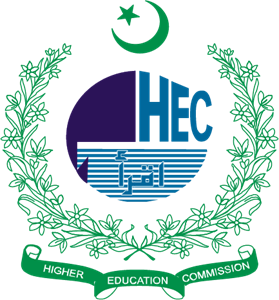STUDENT PERCEPTION OF EDUCATIONAL ENVIRONMENT IN REHMAN MEDICAL COLLEGE, PESHAWAR, PAKISTAN
Abstract
Introduction: Modern education emphasizes the building up of an effective educational environment as a tool to enhance learning. To optimize the educational environment, it is imperative to diagnose its strengths and identify weaknesses for remediation. The present study was conducted to evaluate the Integrated Medical Curriculum at Rehman Medical College, Peshawar, Khyber Pakhtunkhwa, based on students’ perception of the curriculum, so that weak areas of the program could be identified and remediation done.
Materials & Methods: The cross sectional survey was conducted on MBBS students of professional years 1-5 at Rehman Medical College (RMC) in June 2015 (towards the end of the academic session), through convenience sampling, maintaining confidentiality of identity. All students present on the days of questionnaire distribution were enrolled and the standardized 50-item Dundee Ready Educational Environment Measure (DREEM) administered to them after informed consent and relevant instructions. Data were entered and analyzed by SPSS 15.0 for descriptive statistics; year-wise comparisons were done through one-way ANOVA, keeping p≤0.05 as significant.
Results: A total of 337 questionnaires were collected (response rate 67%). The overall mean score was 116.14±28.54 indicating “more positive than negative†perception of the RMC educational environment; the highest score was from Year 4 (126.27±40.53) and the lowest was from year 2 (107.37±30.89). In subscale analysis of mean scores, PoT scored highest (60.75%), followed by PoL (58.71%), ASP (58.2%), SSP (57.53%), and PoA (55.52%). Regarding Likert scale categories of mean scores for the 250 responses of all five MBBS years, 43(17.2%) were in the <2.00 category, 109(43.6%) were in the 2.00-2.49 category, 82(32.8%) were in the 2.50-3.00 category, while the remaining 16(6.4%) were in the >3.00 category.
Conclusion: Students’ perceptions of the RMC educational environment indicated a “more positive than negative†response and compared favorably with other studies from Pakistan and other developing countries.
Keywords: Education, Medical, Undergraduate; Students, Medical; Curriculum; Learning; Perception.




